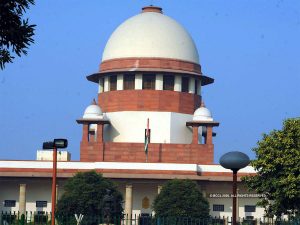Economically Weaker Sections:

A government committee report in the Supreme Court has said that “income” is a “feasible criterion” for defining the “Economically Weaker Sections” (EWS) in society, and the annual family income of ₹8 lakh is a “reasonable” threshold to determine EWS in order to extend reservation in admissions and jobs.
- The committee did not agree with the notion that the Union government had “mechanically adopted” ₹8 lakh as a number because it was also used for the OBC creamy layer cut-off.
- It said the income criterion for EWS was “more stringent” than the one for the OBC creamy layer.
- Firstly, EWS’s criteria relates to the financial year prior to the year of application whereas the income criterion for the creamy layer in OBC category is applicable to gross annual income for three consecutive years.
- Secondly, in case of OBC creamy layer, income from salaries, agriculture and traditional artisanal professions are excluded from the consideration whereas the ₹8 lakh criteria for EWS includes all sources, including farming.
- The report is the result of the Supreme Court’s repeated grilling of the government, since October, to explain how it zeroed in on the figure of ‘₹8 lakh’ as the annual income criterion to identify EWS among forward classes of society for grant of 10% reservation in National Eligibility-cum-Entrance Test (NEET) medical admissions under the All India Quota (AIQ) category.
- The Supreme Court’s query was significant as the One Hundred and Third Constitutional Amendment of 2019, which introduced the 10% EWS quota, is itself under challenge before a larger Bench. The Amendment is under question for making economic criterion as the sole ground for grant of reservation benefits.
- The Centre had then formed an expert committee comprising Ajay Bhushan Pandey, former Finance Secretary; professor V.K. Malhotra, Member Secretary, ICSSR; and Sanjeev Sanyal, Principal Economic Adviser to the Government of India. The committee had submitted its report on December 31.




